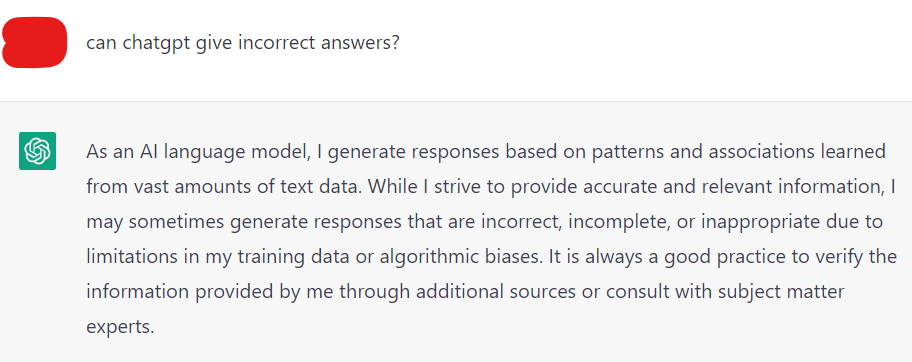Whilst the expression doing more with less has been overdone, nothing expresses the predicament of corporate legal departments better in the current macroeconomic climate. The Thomson Reuters State of Corporate Law Departments Report 2023 showed that the typical legal team considers cost control as their third-highest priority.
Legal Counsel sees technology as a critical tool for solving their two-fold problem of shrinking budget and burgeoning workload. With so many technologies available, it’s difficult to choose which one is best for your team. As ChatGPT (Generative Pretrained Transformer) has emerged, such decisions have been further complicated because it is an easy and inexpensive way to automate low-stakes use cases.
The way to quickly gain clarity is to recognise all the new technology as simply another competent tool to assist in performing low-value, repetitive tasks. Generative AI tools like ChatGPT are still being fine-tuned as they are yet to possess the latest information, can give false information, and make things up that ‘sound’ plausible. These are all three anathema to the legal industry because as a trusted counsel, you are expected to provide accurate, up-to-date, and factual advice to your clients!
However, if you don’t use AI to your advantage, are you leaving insight on the table? In this article, we will discuss both risks and opportunities offered by AI because they go together when we talk of the latest cutting-edge tech.
Generative AI vs Integrative AI: What is the difference?
Generative AI is a subset of deep learning trained on massive amounts of digital content that can generate new content (text, image, speech), etc. based on a user’s prompt input.
Using ChatGPT as a standalone tool can be risky but using it as part of an integrated AI solution can minimise that risk. Having a generative AI system (such as ChatGPT) integrated into your workflow and existing systems through a functionality such as an open API, may be useful, and can function as an extra layer of security. Where set up thoughtfully, doing so will help you ensure that all the checks and balances are being met. You can check that the data you are opting to use is factual in the context of all other information at your fingertips, for example.
Joel Hron, Vice President of Technology at Thomson Reuters, is an advocate for building generative AI that can be trusted.
“Thomson Reuters has for many years implemented AI throughout its portfolio of products in a variety of ways. Generative AI is a new and burgeoning field and Thomson Reuters is (and has for some time) been actively researching this technology. We have several active developments underway internally and are continuing to iterate and improve these models in ways that deliver accurate, trustworthy, and ethical results to our end users.”
What does AI offer Senior Legal Counsel?
Senior legal counsel typically has a plethora of responsibilities ranging from dispensing legal counsel to business units and managing risks to handling inter-departmental collaboration and training new lawyers joining the team. In the current uncertain macroeconomic scenario, there is increased pressure to cut costs while being more effective and accurate in managing legal risks arising out of the same economic uncertainty.
AI-enabled tech tools can help senior legal counsel by:
- Automating routine tasks
- Easily extracting relevant data and insights from a large data bank
This frees up time for critical tasks such as advising, building trust with clients, ensuring compliance, and mitigating risks.
Benefits of Integrative AI for Heads of Legal Departments
By being a combination of multiple AI systems, each an expert in solving a specific problem, Integrative AI offers multiple benefits for heads of legal departments.
Opportunity as a knowledge solution for legal departments
Budgets are shrinking (59% of respondents of the 2022 Legal Department Operations Index were experiencing flat or decreasing budgets) and AI offers an opportunity for lawyers to be more effective and experiment with new technologies in a cost-efficient way. GPT technology can be used to deliver knowledge in more innovative and easier-to-understand ways.
“Whereas before knowledge was represented perhaps in only a spoken or written form (a brief, a memo, a guidance document, etc.), Generative AI has the potential to capture, represent, and convey that knowledge in a more dialogue-centric way, making the interaction and understanding of that content for the end consumer (client) more natural,” adds Joel.
Minimising AI hallucination risk
Generative AI tools like ChatGPT create the illusion of giving an accurate answer but may not always be. This is called hallucination. Look at this response provided by ChatGPT itself:
 Legal technologies integrated with legal research and legal guidance platforms have the necessary processes in place to minimise hallucination risk due to erroneous data, information, or responses.
Legal technologies integrated with legal research and legal guidance platforms have the necessary processes in place to minimise hallucination risk due to erroneous data, information, or responses.
Be a trusted adviser
The output created by generative AI tools such as ChatGPT, needs to be reviewed by senior lawyers to ensure accuracy and compliance. This is especially important considering the myriad of new regulations and guidelines hitting the Australian legal ecosystem in 2023, given that ChatGPT input data is capped till September 2021). Legal Counsel has the opportunity to become the ultimate trusted advisor for clients by providing expert advice over and above that provided by AI tools.
Ethics of AI
Any discussion on AI is incomplete without considering its ethical – or unethical – implications. The bias displayed by many AI tools is a widely documented phenomenon. But that should not mean that you must steer clear of AI tools. The solution lies in choosing the right AI tools and technology – one used and vetted for your legal team’s use cases.
Integrative AI is the future for legal departments. In-house lawyers who can learn to use the latest tools and technologies such as ChatGPT and GPT-4 will be advantaged with a deeper level of advisory ability. As Joel aptly puts it:
“This technology will absolutely transform industry, legal included. But humans will continue to play a key role in using judgement, logic, and creativity to solve problems, even if that is increasingly aided by AI. And the key to remaining relevant is to be eager and curious in how to adopt and utilise it for the benefit of your business and clients.”Any AI model is as good or bad as its training data. Thomson Reuters’ expert knowledge and content-enabled technology provide its AI models with expertly vetted training and fine-tuned datasets. Thomson Reuters has successfully integrated AI-powered technology in its products and solutions such as Practical Law and HighQ for the past three decades.
Where will your legal technology journey take you next? Step into the future with our leading solutions for legal departments today.


